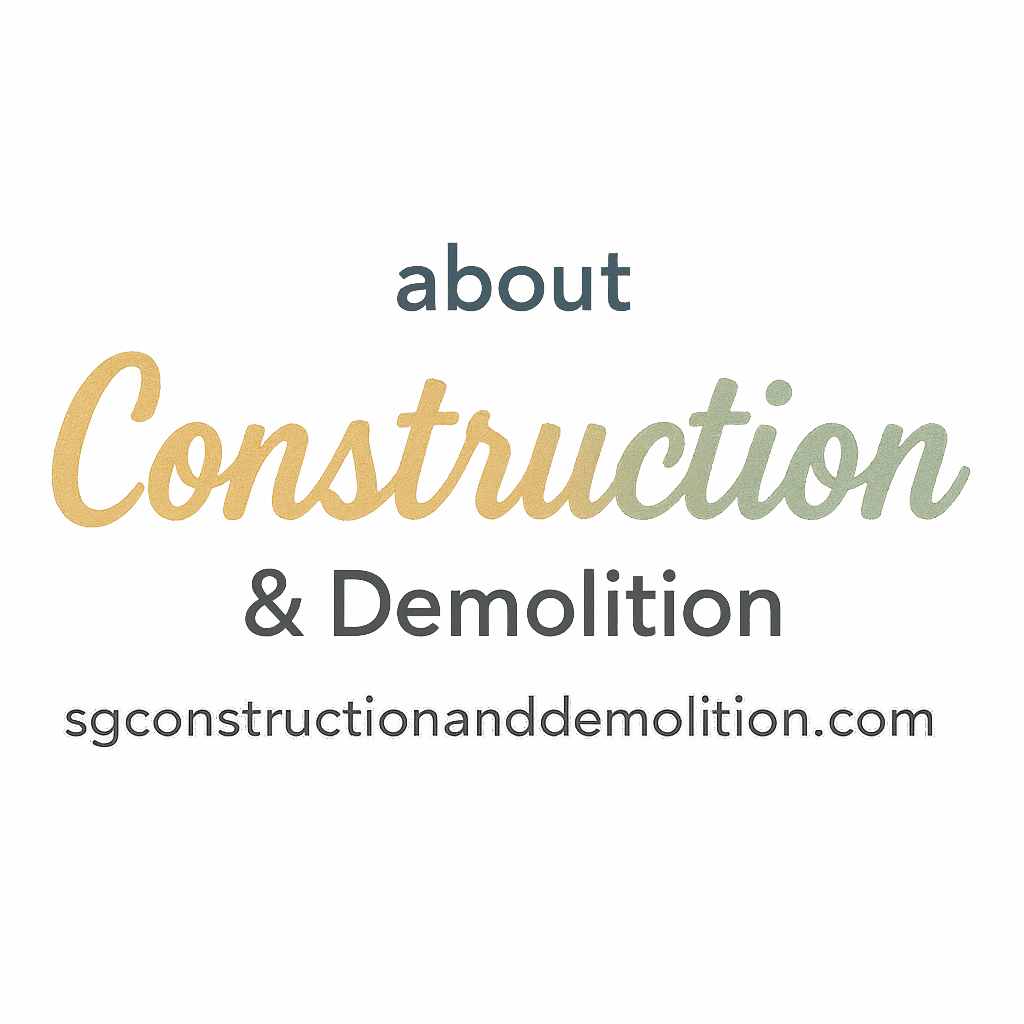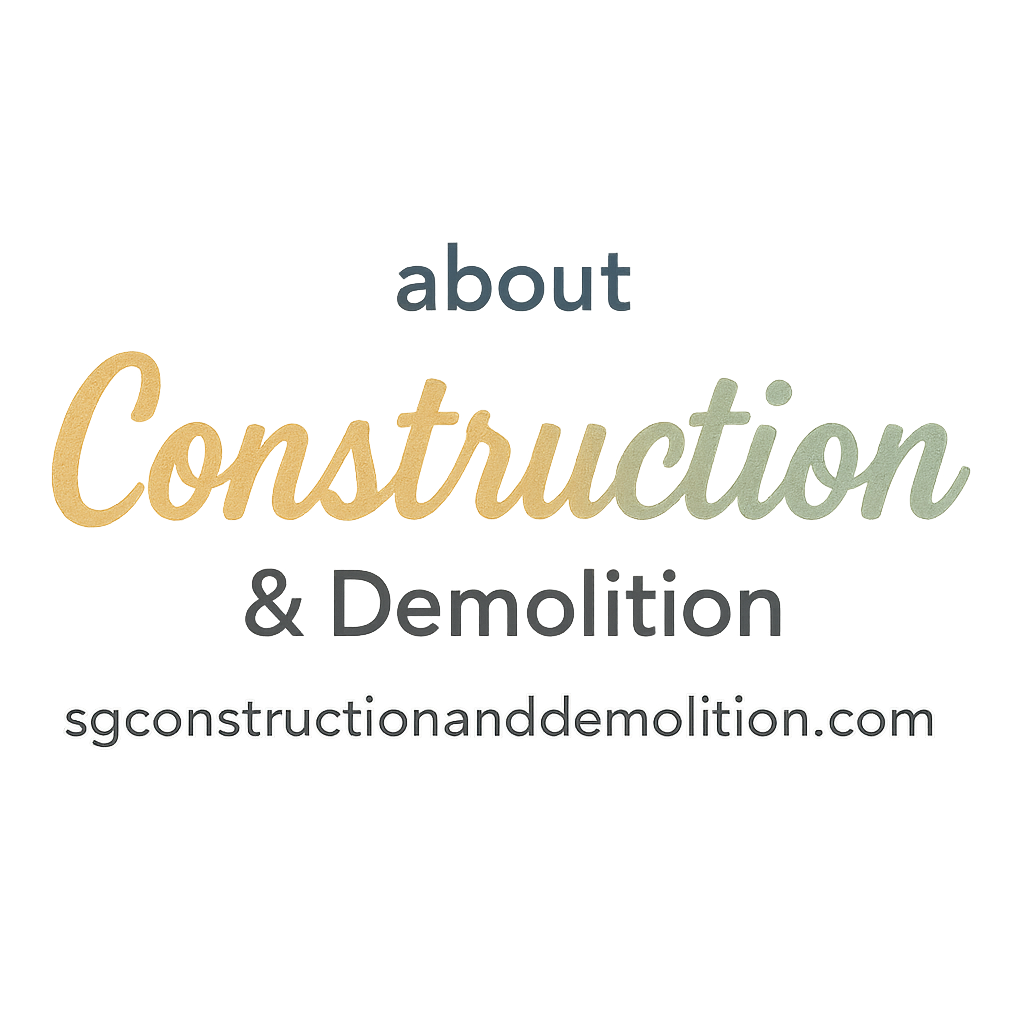Introduction to Demolition Construction
Demolition might seem like all chaos and destruction, but there’s a real science behind tearing things down. Whether it’s a towering building or a simple interior wall, the tools you use can make or break your success—literally.
In today’s post, we’re diving into the 6 tools used specifically in demolition construction, highlighting their functions, advantages, and when to use them. So if you’re a beginner or a seasoned pro, this guide is packed with insights and SEO-friendly gems (don’t forget to check out our Beginners tag!).
Why the Right Tools Matter in Demolition
Efficiency and Safety in Focus
Demolition isn’t just about brute strength—it’s about working smarter, not harder. With the right tools, you speed up the job, stay safe, and reduce unnecessary wear and tear on your team (and your body).
Choosing Tools Based on Demolition Type
There’s no one-size-fits-all in this game. Structural demolition, selective interior demolition, or controlled deconstruction all need different approaches. That’s why we curated this list of essential tools that are purpose-built for demolition.
Let’s break it all down.
1. Jackhammers – The Power Breakers
How Jackhammers Work
The jackhammer is the poster child of demolition—and for good reason. Using either pneumatic or electric power, jackhammers pound through concrete, asphalt, and rock like a hot knife through butter.
Best Use Cases for Jackhammers
Jackhammers shine in roadwork, foundation removal, and slab demolition. They’re perfect for breaking apart hard surfaces in tight or awkward spaces where larger equipment won’t fit.
Safety Tips When Using Jackhammers
- Always wear hearing protection and a dust mask.
- Use anti-vibration gloves.
- Take frequent breaks to avoid fatigue.
For more on tools like jackhammers, visit our guide on tools and equipment.
2. Wrecking Balls – Old School Demolition Muscle
History and Legacy of Wrecking Balls
Wrecking balls are the OG of large-scale demolition. Nothing says “we mean business” like a steel ball weighing several tons smashing through concrete.
When Are Wrecking Balls Still Useful?
Despite modern advances, wrecking balls are still effective for bringing down large masonry buildings when precision isn’t the priority. They’re less common today but still hold their place in the demolition toolbox.
See our post on demolition techniques to explore alternatives.
3. Excavators with Demolition Attachments
Hydraulic Shears, Hammers, and Grapples Explained
Excavators become true demolition beasts when fitted with the right attachments. Think:
- Hydraulic shears for slicing through steel beams,
- Hydraulic hammers for pulverizing concrete,
- Grapples for grabbing and sorting debris.
Versatility of Modern Excavators
You can switch attachments mid-project, making excavators some of the most flexible tools in demolition. They’re indispensable for both large and small-scale jobs.
Explore the category of methods and techniques we recommend for choosing attachments.

4. Concrete Saws – Precision Cutting Tools
Types of Demolition Saws
From handheld saws to walk-behind floor saws, concrete saws are essential for precise cuts in walls, floors, or road surfaces. Blade types vary based on materials—diamond blades for concrete and abrasive blades for metal.
Why Cutting Beats Smashing in Some Cases
Sometimes brute force causes collateral damage. Saws let you cut exactly what you want removed, leaving surrounding structures untouched. It’s the “scalpel” of the demo world.
Want to understand more? Visit our section on construction basics.
5. Bulldozers – For the Final Knockdown
Pushing Through Walls Like a Pro
Bulldozers are pure pushing power. Once structures are weakened, dozers can level them in minutes. They’re especially useful in clearing debris post-demolition.
When to Bring in the Bulldozer
Bring in the dozer when you need to flatten a site fast. Perfect for large-scale demolition where time and force are the priority.
See more heavy equipment in our equipment tag.
6. Skid Steer Loaders – Compact and Mighty
Why Skid Steers Are Game Changers
Skid steers may be compact, but they punch way above their weight. With multiple attachments like breakers, buckets, and grapples, they’re ideal for indoor or tight-space demolition.
Ideal Scenarios for Using Skid Steers
Perfect for:
- Interior gut-outs,
- Parking garage demolitions,
- Urban environments with limited space.
Check out innovation trends that have made skid steers smarter and safer.
Bonus Tools Every Demolition Pro Should Know
Pry Bars, Sledgehammers, and More
Let’s not forget the classics:
- Sledgehammers for small, controlled demolitions,
- Pry bars for disassembly,
- Reciprocating saws for wood and drywall.
These tools might not be flashy, but they’re essential for any demolition toolkit.
See our list of misconceptions and myths around manual demolition.
Planning and Safety Go Hand-in-Hand with Tools
PPE and Pre-Demo Checklist
Before you pick up a tool, make sure you:
- Have the proper PPE (helmet, goggles, gloves, etc.).
- Understand the structure and utilities (gas, electric, water).
- Have the proper permits.
Visit our full section on planning and safety to learn more.
Smart Tech and Green Trends in Demolition
The industry is evolving. From smart sensors to eco-friendly materials, modern demolition isn’t just about destruction—it’s about sustainability. Read more on green smart trends shaping the future of the field.
Final Thoughts on Choosing the Right Tools
The tools you choose determine how fast, safe, and successful your demolition project is. Whether you’re swinging a sledgehammer or commanding an excavator, the right gear is everything.
Want more resources and project tips? Visit our project management tag.
Conclusion
Demolition is more than just smashing things apart—it’s about strategy, precision, and the right tools. From jackhammers to skid steers, each tool plays a unique role in safely and efficiently bringing down structures. Whether you’re working on a small renovation or a major teardown, understanding these six demolition tools will give you a serious edge on your next project.
For more demolition tips, tool guides, and construction insights, check out our homepage at SG Construction and Demolition.
FAQs
1. What’s the most versatile demolition tool?
The excavator with attachments like hammers and shears takes the crown due to its adaptability.
2. Are skid steers safe for indoor demolition?
Yes! Their compact size makes them ideal for indoor jobs—just be sure the ventilation is adequate if using fuel-powered models.
3. Is a jackhammer better than a sledgehammer?
For large concrete jobs, yes. Jackhammers offer more power and reduce labor fatigue.
4. Can I rent demolition tools instead of buying them?
Absolutely. Many rental companies offer short-term leases on everything from saws to excavators.
5. Are wrecking balls still used today?
They are, but less frequently. Newer tools offer more control and safety.
6. What’s the best beginner tool for small demos?
A pry bar and a sledgehammer are budget-friendly, beginner-friendly tools.
7. How do I know which demolition technique to use?
Start by identifying the structure type, materials, and surrounding environment. Then choose tools accordingly. You can explore demolition techniques for guidance.


